… and their ćevapćići and sudžukice will take you on an express journey to 7th food heaven
Sarajevo is just cc: a 300 km away from Belgrade … get in your car and pamper your soul with sevdah music that means passion&love and seek solace in Bosnian food by visiting Ferhatovic, Željo, Mrkva …
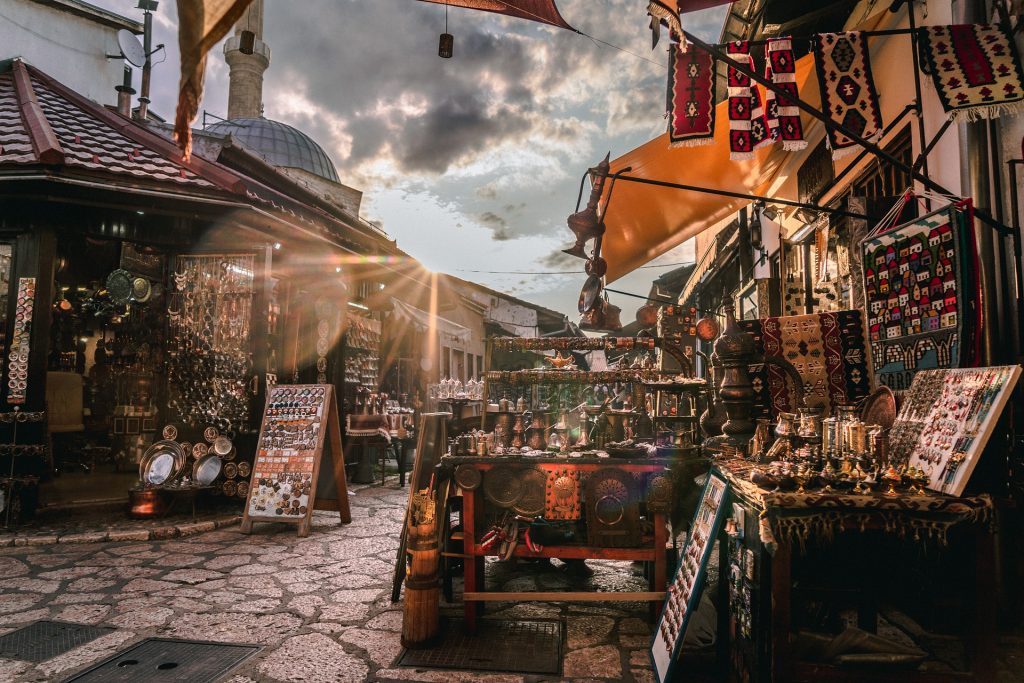
Before you travel to Bosnia let’s learn the basics; Sevdalinka is a traditional genre of folk music from Bosnia and Herzegovina. It is an integral part of the Bosnian culture but is also spread across the ex-Yugoslavia region, including Croatia, Montenegro, North Macedonia, Kosovo and Serbia. The actual composers of many Sevdalinka songs are largely unknown because these are traditional folk songs. In a musical sense, Sevdalinka is characterized by a slow or moderate tempo and intense, emotional melodies. Sevdalinka songs are very elaborate, emotionally charged and are traditionally sung with passion and fervour. The combination of Oriental, European and Sephardic elements make this type of music stand out among other types of folk music from the Balkans. The melodies are noted for leaving a strong melancholic feeling with the listener. Traditionally, Sevdalinka’s are women’s songs, most addressing the issue of love and longing, unfulfilled and unfortunate love, some touch on a woman’s physical desire for her loved one, and some have various comic elements. There are Sevdah songs written and sung by men as well. Traditionally, they were performed without any instrument, hence their elaborate melody. Modern interpretations are followed by a small orchestra featuring the accordion as the most prominent instrument the violin, nylon-string guitars and/or other string instruments, occasionally – such as oud, saz or šargija, the flute or clarinet – occasionally, upright bass and the snare drum. In modern interpretations, between the verses, an accordion or violin solo can almost always be heard.
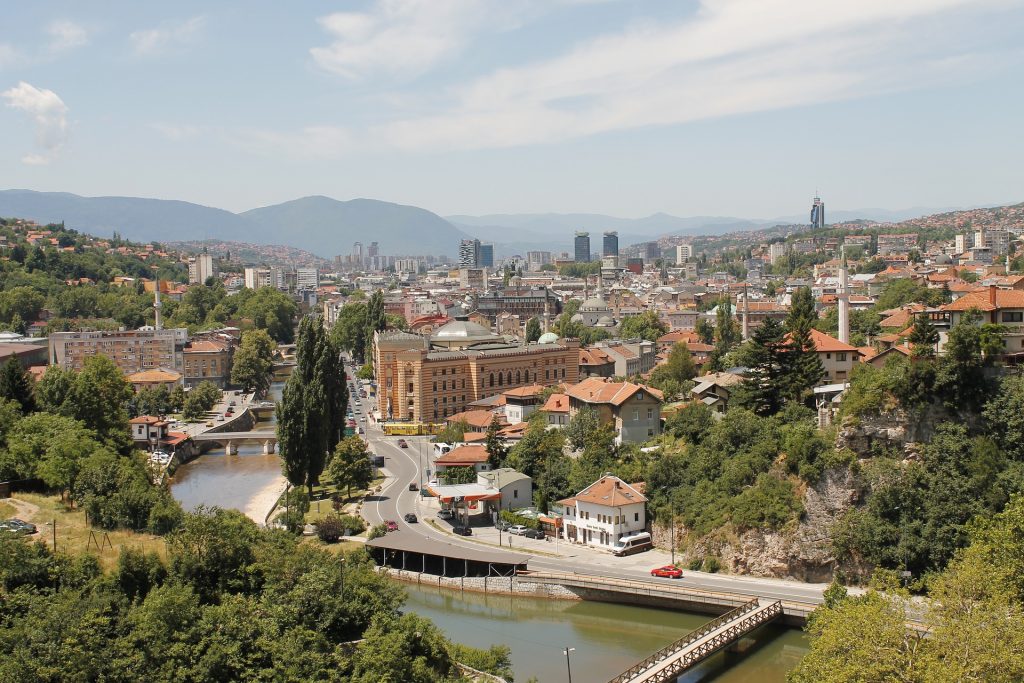
So, tell me- Have you ever listened to Mostar Sevdah Reunion – the band born in the divided city of Mostar, determined to sing their songs regardless of anyone’s race or religion. Grab your phone and find them on Youtube or Spotify and I am sure you will love them – this band is a true master of a revival of sevdah that was once singing in Bosnia by famous singers like Himzo Polovina with his interpretation of “Lijepili su mostarski dućani/Prošetala Suljagina Fata” or Safet Isović with “Mujo kuje konja po mjesecu”, Nedžad Salković, famous for the interpretation of “Ne klepeći nanulama” sevdalinka or Nada Mamula with her “Oj Safete, Sajo Sarajlijo”. I look forward to hearing your comments also about the songs like “Čudna jada od Mostara grada”, “Moj dilbere”, “Jutros mi je ruža procvijetala” …
While your fingers are still warm of search find also the most famous sevdah singer in Balkans Božo Vrećo – Bosnian Conchita or my families favourite sevdah bend Divan Hana with their performances of “Ko se ono brijegom šeće”, “Vino piju nane age Sarajlije”, “Aj mene majka jednu ima pa ima” or “Lijepi li su mostarski dućani”, “Snijeg pade na behar na voće”, “Jutros mi je ruža procvetala”, “Kad ja pođoh na Bembašu just to mention few. Amira Medunjanin is also a famous Bosnian singer and interpreter of sevdalinka and all her concerts are usually sold out in the whole Balkan region. Make sure you get a ticket when she sings next time in Belgrade. You will not regret it.
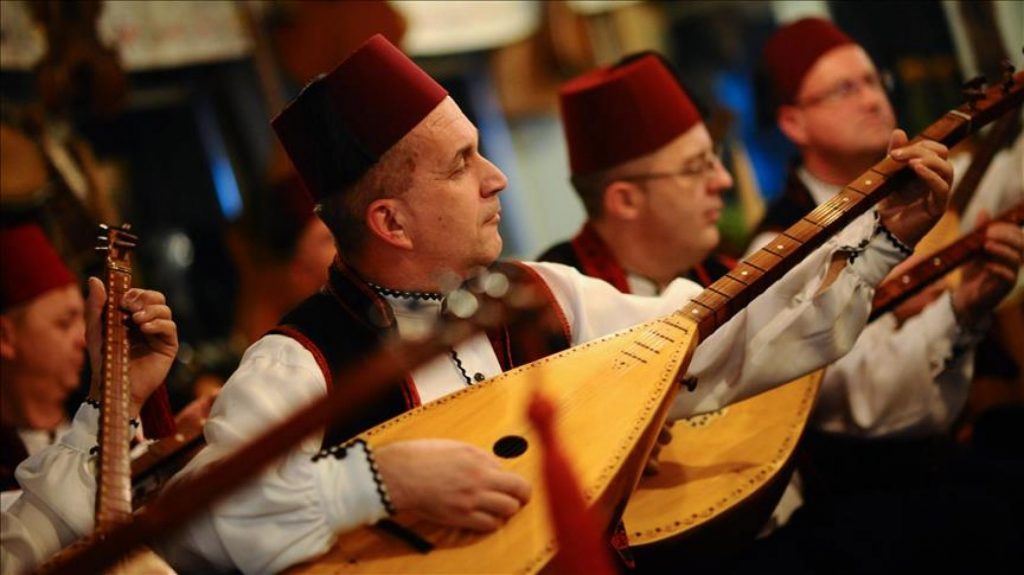
And last but not the least in your “sevdah knowledge chest” – The most well-known sevdalinka song of all time covered by many prominent singers from Bosnia and Herzegovina and other parts of former Yugoslavia is “Emina” poem by the poet Aleksa Šantić. The poem was first published in 1902 in the literary journal Kolo. The subject of the poem is Šantić’s neighbor, a girl named Emina Sefić.
Ok- now that you have listened to the songs and have been “infected” by sevdah and you start your plan for the trip to Bosnia, let’s also learn something about the meaning of the word Sevdah which has several interpretations. The most accurate explanation is that it is the Arabic word “Sevdah”, which means love, desire or ecstasy. The Arabic word “Sevdah” was used by physicians to describe black gall, a substance that circulates through human organisms that controls feelings and emotions.
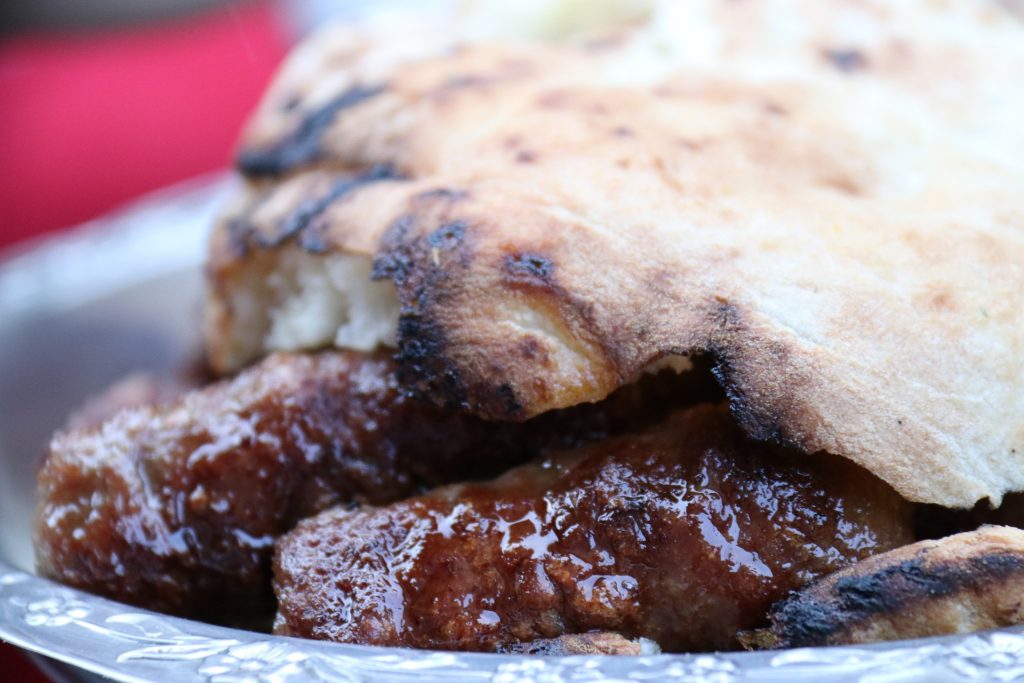
And before we live you to pack your Bosnia trip bags, let me teach you the survival phrase #1 and 2, in the part of food planet called Bosnia; namely “Deset u pola s’lukom” and “Napari mi somun” – the holy words you should use “as cool&relaxed as possible” as any Bosnian when you enter a “ći – ći” and “ce -ce” i.e. ćevapćići&sudžukice temple-like Ferhatović, Željo or Mrkva. The translation is: “Ten (ćevapćići) in half (somun/flatbread) with onion” and “Steam my flatbread”.
Did you also know that “Deset u pola” is the title of Mouth-Watering Foodie Movie for Meat Eaters – a comedy from one of Bosnia’s best-known directors Danis Tanović. That movie was this year’s Sarajevo Fest’s opener – the English title is “Not So Friendly Neighborhood Affair”.
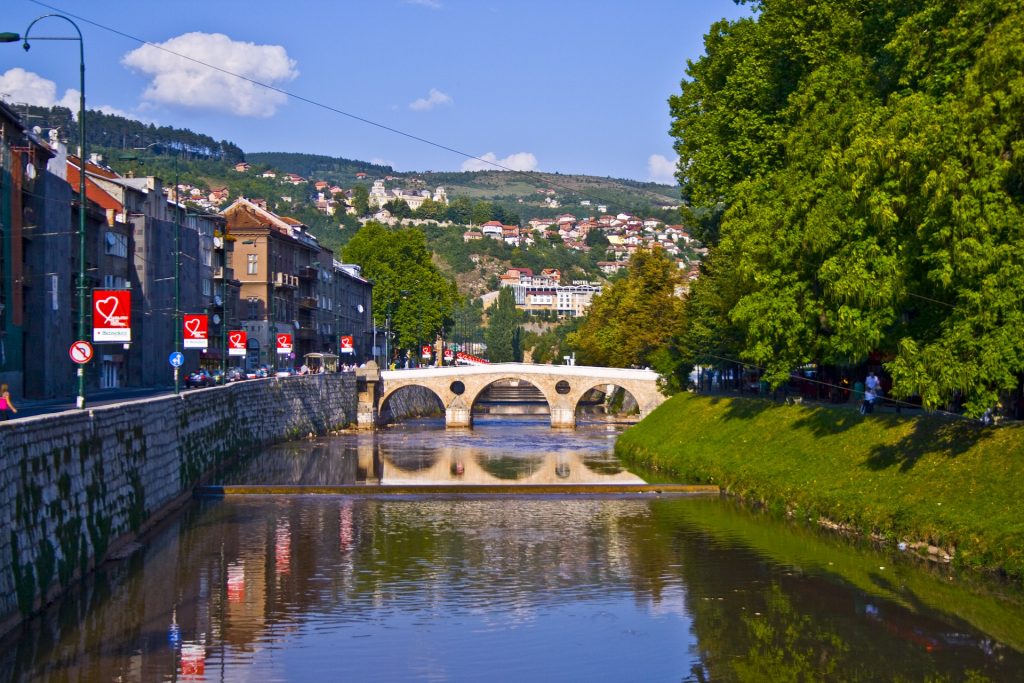
“Deset u pola” is a comedy set in Sarajevo in May 2021, as the city’s famous Old Town Baščaršija tries to recover after a difficult pandemic year. When a visitor from Zagreb comes looking for the best kebabs in town, a harmless gesture causes the disintegration of the business and private lives of several people. Danis is a Bosnian film director and screenwriter best known for having directed and written the script for the 2001 Bosnian movie “No Man’s Land” which won him many awards, including the one&only so far Bosnian Oscar – Academy Award for Best Foreign Language Film and a Golden Globe Award for Best Foreign Language Film among many others. He is regarded as one of the best Bosnian directors and screenwriters of all time and also, one of the best from Southeast Europe.
Author Vanja Kovačev